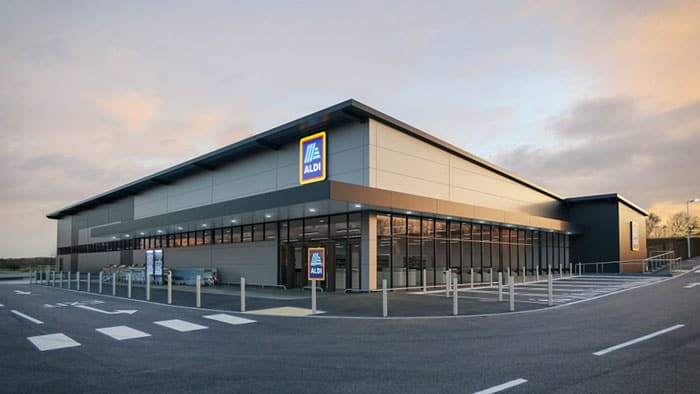
Aldi has put on the market four of its Aussie logistic facilities under leaseback deals
New Zealand is among the smaller real estate markets in Asia Pacific, but a warehouse transaction in the island nation last month may point to a new trend of corporate property owners teaming with fund managers to unlock capital this year as the COVID-19 crisis pushes cashflow to the forefront.
In early April Australia’s Toll Group formed a joint venture with Sydney-based Logos Group and another investor said to be Singapore’s GIC, to transform an Auckland area site owned by the shipping firm into a NZ$250 million ($150 million) logistics facility, with Toll then leasing its existing facility on the site for 15 years under a sale and leaseback agreement that allows it to get cash up front.
The deal, which provides Logos and GIC with space to build a new 30,000 square metre logistics facility on the same site, is among a rising trend toward sale and leaseback agreements for scarce assets such as warehouses and offices.
Brokers at JLL indicate that the shift toward companies in Asia Pacific say seeking to monetise their corporate real estate is likely to grow as businesses find bank financing scarce this year and investors continue to seek high quality assets.
Crisis Creates New Avenue for Investors
“Asian companies have typically owned their real estate, more so than foreign corporates, with the notion of owning a facility being a good store of worth,” explains Stuart Crow, CEO for Capital Markets at JLL Asia Pacific. “The crisis will provide some impetus for corporates to sell assets and focus on their core businesses, and this will create a new avenue for real estate investors and fund managers.”

Stuart Crow,
CEO Capital Markets, Asia Pacific, JLL
Already this year JLL were reported to assist German supermarket giant Aldi to market, on a sale and leaseback basis, a set of four Australian logistics centres to investors through a tender which closed in April.
Such sales of corporate-owned real estate in Asia Pacific have averaged approximately $17 billion per annum over the past five years, according to information provider Real Capital Analytics, with JLL’s team indicating that inquiries for the transaction model picking up significantly in 2020, as unsteady markets have forced many corporates to take a closer look at their balance sheets.
The brokerage reports that, since early April, inquiries have spiked from companies that own their corporate real estate across sectors including automotive, electronics, media, retail and technology with the increase in interest popping up in some of APAC’s biggest markets, such Australia, Greater China, Japan, Korea and Singapore.
In Seoul, JLL’s team has recently kicked begun marketing the Pfizer Tower – a 15-storey office asset in the Korean capital’s CBD – as a sale and leaseback opportunity for the property occupied by Pfizer Korea.
“Corporate owners and occupiers are actively seeking new sources of liquidity and greater flexibility across their real estate portfolios,” Jeremy Sheldon, Head of Markets for JLL Asia Pacific said. “As many continue to re-evaluate their business models and look to maximize working capital during this time of uncertainty, real estate is viewed through a different lens, whereby it can provide both a source of immediate cash flow and tenancy flexibility.”
Deals Cluster in Major Markets
Companies hoping to convert their corporate offices or logistics facilities into cash may find willing partners among fund managers that have long struggled to gain access to investment grade properties in the region’s core markets.
With global allocations to Asia Pacific real estate having risen consistently over the past five years, investors now have an estimated $40 billion in capital poised to acquire property assets in the region, according to JLL data.
As the coronavirus disrupts business this year, fund managers and other buyers are expected to focus on the region’s core markets, with these more developed markets already established as the most common locations for sale and leaseback deals in Asia Pacific.
JLL’s team indicated that the company has also in recent years completed sale and leaseback deals in Australia’s Queensland state, Singapore, Tokyo and Seoul. At present, the brokerage is also conducting a sale and leaseback transaction in mainland China.
Note: this story has been updated from an earlier version to clarify a photo caption.
Leave a Reply